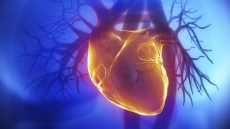That parental obesity affects the likelihood of children to over-eat and develop obesity is known, but researchers have now identified the genetic link behind the mechanism.
Being over-weight and obese has a direct impact on the genes which signal when it is time to stop eating, the findings showed.
Blocked expression of a gene called POMC, which manages a discrete area of the brain that controls feeding behaviour could provide the missing link between a mother's diet and an offspring's risk of future obesity.
Excess methylation (an important component in cellular processes) on the DNA sequence blocks the ability to express this gene, leading to a late satiety response, increased food intake and eventual obesity.
"We observed a clear correspondence between a specific genetic mechanism and weight gain, potentially allowing for early detection and prevention of obesity," said Asaf Marco, a researcher involved in the work from Bar Ilan University in Ramat-Gan, Israel.
For the study, the researchers fed female rats a high-fat diet and a standard diet from post-weaning to adulthood and in a separate group through pregnancy and lactation.
All offspring, including those of the high-fat treated rats, received standard food after weaning until adulthood.
Blood was analysed for hormone levels and brain sections for genetic modification on the specific DNA sequence of interest.
The researchers found that genetic malprogramming induced by maternal high-fat diet had a long-term effect on the offspring's vulnerability to development of obesity.
The study appeared in The FASEB Journal.





